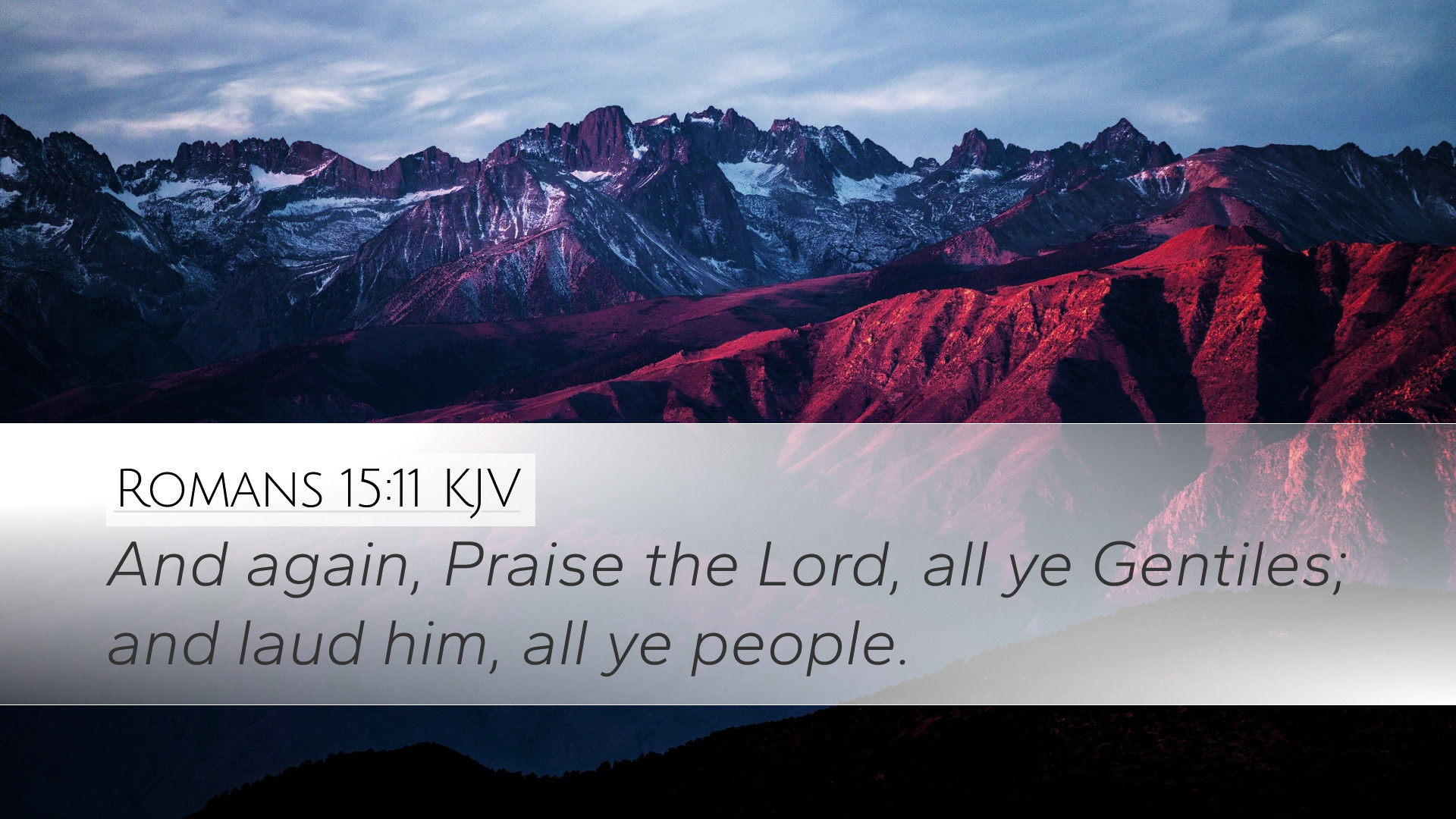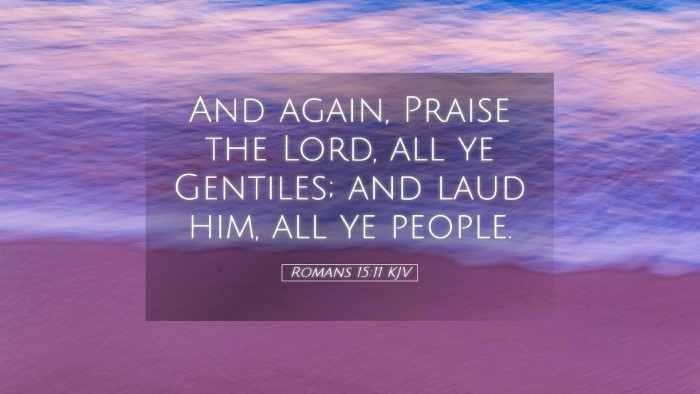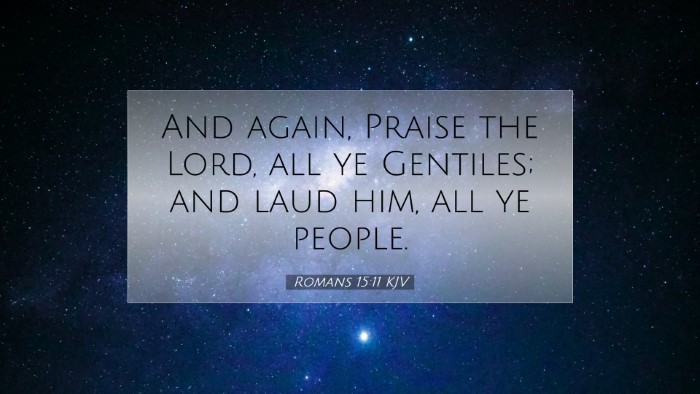Bible Commentary on Romans 15:11
Text of the Verse: "And again, Praise the Lord, all you Gentiles, and let all the peoples extol him."
Introduction
This verse encapsulates a powerful call to worship that emphasizes the inclusion of the Gentiles in God's redemptive plan. The Apostle Paul, in his epistle to the Romans, draws from the Old Testament to underscore the universal nature of God's grace and mercy. This commentary synthesizes insights from prominent public domain scholars to enrich the understanding of this verse.
Contextual Overview
The broader context of Romans 15 discusses the unity between Jewish and Gentile believers in Christ, affirming that Jesus came to fulfill the promises made to the patriarchs. Paul addresses the importance of mutual acceptance among believers, urging them to bear one another’s burdens and to glorify God in their diverse backgrounds.
Insights from Matthew Henry
According to Matthew Henry, this verse draws upon the prophetic words in Psalm 117:1. He emphasizes that the praise of God is not limited to a particular race; rather, it is a divine decree that all nations should worship Him. Henry notes that this reflects the heart of God, who desires inclusivity and an acknowledgment of His sovereignty among all peoples. He also highlights how the exhortation to 'praise the Lord' serves as a unifying command for all believers, regardless of their cultural or ethnic backgrounds.
Insights from Albert Barnes
Albert Barnes provides a detailed analysis of the phrase "all you Gentiles." He explains that the Apostle Paul, in quoting from the Old Testament, seeks to emphasize the prophetic declaration that salvation through Christ is available to everyone. Barnes elaborates on the implication that God has intentionally included the Gentiles in His plan, showcasing His grace that transcends the bounds of ethnicity. Furthermore, he points out that this verse should embolden believers to recognize that anyone can access God’s grace through faith, breaking down previous barriers.
Insights from Adam Clarke
Adam Clarke offers rich theological reflections on the call to praise in this verse. He remarks that the phrase "let all the peoples extol him" signifies a global proclamation of God’s glory, urging every nation to proclaim His greatness. Clarke connects this exhortation to the missionary mandate of the church, reinforcing that the Great Commission is rooted in such declarations. He also notes the joy and hope that the Gentiles have in their newfound relationship with God, which ought to be celebrated and shared among all believers.
Theological Implications
The theological implications of Romans 15:11 are profound. This verse underscores the inclusive nature of the Gospel. It signifies the breaking down of barriers that previously separated Jews and Gentiles. Here are some key implications:
- Inclusivity of Worship: All people, regardless of background, are called to worship God.
- Unity in Diversity: The Church embodies a diverse collection of believers united in purpose and faith.
- Divine Mission: Believers are called to take the message of Christ to all corners of the earth, fulfilling God's plan for all nations.
Application for Believers
This passage challenges believers today to reflect on their attitudes toward those who are different from them. Here are some applications:
- Fostering Community: Work towards building communities that welcome and celebrate diversity in the body of Christ.
- Encouragemet to Evangelism: Recognize that the Gospel is not exclusive and that believers are called to extend God's grace to everyone, particularly to those outside their cultural or ethnic circles.
- Personal Worship: Engage in personal and communal worship that embraces the variety of expressions of faith across different cultures.
Conclusion
Romans 15:11 serves as a powerful reminder of God's heart for all nations to worship Him. By blending insights from Matthew Henry, Albert Barnes, and Adam Clarke, we see a multifaceted view of God's intentions for humanity. This verse not only reinforces the call to praise from all people but also encourages believers to actively participate in the fulfillment of God's purpose by acknowledging and sharing His love across cultural divides. In a world often marred by division, this message of unity through worship remains vital for the Church today.


